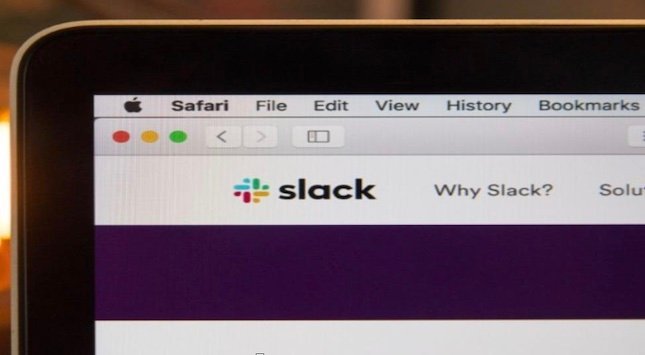Effective financial management is essential for the success of any organization in the fast-paced commercial environment of today. Accounting software is one of the most important tools that can greatly streamline financial procedures.
Regardless of how big or small your business is, investing in the correct accounting software can help you save time, increase accuracy, and improve decision-making.
In this blog post, we’ll examine the key characteristics that every company should take into account when selecting an accounting software system.
User-friendly Interface and Navigation
A user-friendly interface and simple navigation are among the first qualities to look for in accounting software. A user-friendly interface reduces the learning curve and minimizes errors by making it simpler for users to comprehend and utilize the product.
Look for software that has a simple, logical layout with menus and icons that make it easy for users to find the functionality they require. No of their level of technical skill, personnel from different departments can use the software with ease thanks to its user-friendly interface.
Core Accounting Functionality
Accounting software ought to offer strong core accounting capability to manage your company’s basic financial operations. These include functions including managing the general ledger, paying and receiving money, issuing invoices, creating financial statements, and reconciling bank accounts.
Additionally, the program ought to include options for managing taxes adhering to regional legislation and supporting a variety of currencies.
Make sure the program satisfies both your unique accounting requirements and industry standards.
Automation and Integration Capabilities
One of the main benefits of adopting accounting software is efficiency. Look for software that has automation features, such as transaction classification and automatic data entry. Automation minimizes errors and frees up time for more strategic operations by reducing the manual effort needed for repetitive procedures.
Additionally, data flow is fluid and redundant data entry is avoided thanks to connectivity with other corporate systems like payroll, inventory control, and CRM software. Integrating your systems ensures that all of your organization’s financial information is accurate and current.
Advanced Reporting and Analytics
Monitoring your company’s financial health requires access to thorough reports that are also customizable. A wide range of standard reports, including balance sheets, income statements, and cash flow statements, should be available in accounting software.
Additionally, it should enable the creation of bespoke dashboards and ad hoc reports for the analysis of crucial financial parameters unique to your company.
You can discover trends, make educated decisions, and obtain useful insights into your financial performance by using sophisticated reporting and analytics tools.
Security and Data Protection
It is crucial to protect private financial information. Make sure the accounting program you use has effective security controls. Role-based access control, data encryption in transit and at rest, and regular data backups are a few things to look for.
To protect your financial data, the software must adhere to industry norms and laws. Also, take into account the software provider’s history of security lapses and their dedication to ongoing security updates.
Scalability and Flexibility
It’s crucial to choose accounting software that can expand to meet your needs as your organization changes and expands. As your firm grows, be sure the software can accommodate higher transaction volumes and more users. Scalability includes the software’s capacity to adjust to evolving accounting standards and legislative mandates.
Look for software that allows for easy customization so you may adjust it to your unique company procedures and reporting requirements.
Customer Support and Training
Take into account the amount of customer service and training offered by the software vendor before investing in accounting software. Be sure to choose a vendor that has thorough documentation, online guides, and helpful customer service options.
Your workers will be equipped with the necessary training materials and ongoing support to make the most of the software’s capabilities and resolve any potential problems. A smooth deployment and ongoing successful use of the program depend on good customer service.
Cost and Pricing Structure
When evaluating accounting software, it’s important to consider the cost and pricing structure to ensure it aligns with your budget and financial goals.
Here are a few factors to consider:
1. Upfront Costs:
Find out if the program is subscription-based and charges monthly or yearly costs, or if a one-time upfront purchase is necessary. To decide which payment option is appropriate for your company, take into account your cash flow and spending plan.
2. Scalability and Pricing Tiers:
Verify whether there are several pricing tiers available for the program based on the size of your company or the number of users. This enables you to launch with a fundamental plan and upgrade as your company develops. A straightforward price structure that offers value for the features and functionalities you need is important.
3. Additional Costs:
Be mindful of any fees outside of the base subscription. Add-ons, integrations, and premium support may come at an additional cost for some products. When assessing the software’s overall affordability, consider these costs.
4. Return on Investment (ROI):
Take into account the potential return on investment the program may provide. Analyze the time and money it can be saved by automating, streamlining, and improving accuracy. A more expensive piece of software might offer substantial advantages worth more than the upfront cost.
5. Free Trials and Demos:
Utilize the free trials or demos that software vendors offer. This enables you to evaluate the features and functionality of the software before making a purchase. Take advantage of the chance to determine whether the program satisfies your company’s needs and is worth the price.
Conclusion
Making the proper accounting software selection is a crucial choice that can have a big impact on your company’s financial management and productivity.
You can make an informed decision that suits your company’s needs and objectives by taking into account the features covered in this blog post, such as the user-friendly interface, core accounting functionality, automation capabilities, advanced reporting, security measures, scalability, customer support, and cost considerations.






